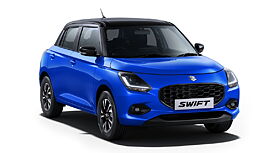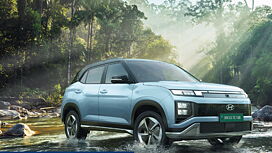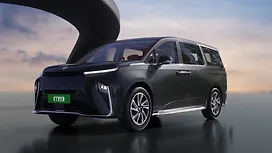Introduction
It has been over a month since I started using the new Swift as my daily driver. And I must say, I have grown quite fond of it. So much that I haven’t touched my motorcycles or my wife’s automatic Carens at this time for my daily commutes. Now, my commute isn’t easy - it’s 40km one way, in Mumbai. While it’s lovely at 7 am, the evening commute can be a nightmare. It can take me up to two and a half hours to get back from work courtesy of stop-and-go traffic. And, the Swift, if you missed it, is a manual. It is not the best choice to battle peak-hour Mumbai traffic. But I still find myself reaching for its keys every time I leave for work.
So, what makes it special, particularly in the city? And, as with most things in life, not all is great with the car. So, what are its shortcomings? Here’s a drill down on all that’s good and not so good about the Maruti Suzuki Swift.

What’s good
Comfortable seating: If you are used to SUVs, getting in and out of the Swift will feel a tad cumbersome given its relatively low ingress and egress height. But once seated, the positioning of the floor pedals, the steering, and the gear shifter against the seat is brilliant. It feels natural and comfortable, and spending long hours commuting in the Swift - when driving - has not turned out to be tedious, yet. The seat cushioning, particularly the firmness and the bolstering, is well-judged. Now, is the rear bench as comfy? That’s something I will explore in the next report.

Light controls: Comfortable seating is only part of what makes the Swift effortless to drive and battle traffic jams. The light clutch and steering play an equally important role. Plus, these aren’t just light; the progression and response they offer, not to mention, the ease of modulating these controls again play a significant part in making driving easy and less tiring.

Size and visibility: It is a small car - not the cramped-for-four kind, but more the easy-to-park and easy-to-slot-into-traffic-gaps kind. I had experienced this with the MG Comet earlier. A small car opens up gaps in city traffic which you can’t see or make with SUVs — even the sub-4m SUVs, for that matter. The Swift is similar to the Comet. It is not as easy, mind, but surprisingly easy nonetheless. The darty nature of its low-speed handling and the clear visibility upfront and via the A-pillar, besides its relatively small dimensions, make it a hoot to drive in the city. It is also easy to park, so I am never worried about taking it to places I am not sure will have parking.

Fuel efficiency: The Swift in the manual guise is wonderfully fuel efficient. Going by the car’s computer, it returns over 20kmpl on my morning commutes. This drops to around 14kmpl on my way back; a journey that takes over two hours to cover a mere 40km. Overall, in the tank-up-to-tank-up method, the car returned between 15.3kmpl and 15.7kmpl. I think that’s very efficient indeed.

Keyless entry request button on both doors: It’s a small thing, but it is so logical and handy. It’s a boon when you can open the door for your wife without reaching for the keys first. It’s great when you park on the ‘other’ side of the road and need to put your stuff on the passenger seat before driving off. Or collect said stuff from the passenger side and lock the car - again, without pulling the key out of your pocket.
It's these small things that make it easy to live with a car.
What’s not good
Erratic fuelling at low rpm: The Swift’s new three-cylinder engine is strong, especially when it comes to low and mid-range torque. As a result, I find myself short-shifting and driving between 1,500rpm and 2,500rpm more often than not. But, the low-rpm-part-throttle fuelling on the Swift is erratic. It makes driving quite jerky, which your passengers will not appreciate. I am still trying to train my right foot to iron out the jerkiness, but I have been failing miserably.

Ride over square bumps feels brittle: For the most part, the Swift returns a comfortable ride. In fact, its ride and handling balance is one of the better ones in the hatchback category. But, it doesn’t handle the square-edged bumps too well. it doesn’t round them or roll over them. Instead, it crashes into them feeling harsh and brittle. As a result, you tend to slow down for most things, which can get a little irritating.

Wireless charging is slow: On this top-spec version, one gets wireless Android Auto. And I have chosen for it to connect automatically every time I start the car. But, the wireless connection drains the phone’s battery. Thankfully, there’s wireless charging in the Swift too. However, the Android Auto saps more battery than the wireless tray can replenish. And on my commute back, I was often running out of charge. So, now I have resorted to wired charging. And to me, that seems a bit pointless, not to be able to use a feature because it isn’t configured correctly.

What’s next?
In the next report, we will take the Swift on intercity travel. We will tell you about its straight-line stability, how it handles the corners, what sort of range it offers, and if it continues to feel comfortable and easy.

Product Details
Make: Maruti Swift
Model: New-gen Swift Manual
Trim: ZXI+
Fuel: Petrol
Kilometres this month: 2,200km
Fuel efficiency: 15.3kmpl
Price when tested: 10.75 lakh, OTR, Mumbai
Photography by: Kaustubh Gandhi

























